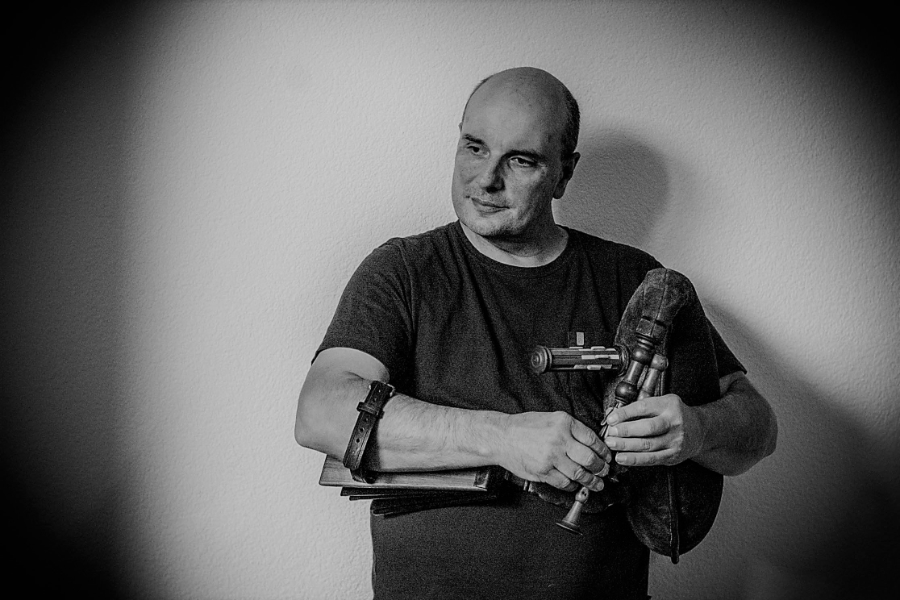The most important and sensitive parts of the wind instruments that will sound during the concert, are made of arundo donax – plants known in English as giant reeds. These reeds give wind players sleepless nights because the journey from a reed growing on the riverbank to a high-quality product is long. As with any natural material, reeds are affected by changes in temperature and humidity, so the reed is capricious. However, when you manage to master it, the instrument will sound wonderful.
One of the instruments in the line-up of tonight’s concert is the musette de cour, i.e. small Baroque bagpipes created in France at the end of the 16th century. The term "de cour" links this instrument with the aristocratic milieu in which the fashion for an Arcadian-style rural idyll appeared in the 17th century. The fun and games organized at that time, during which courtiers and ladies played the roles of shepherds and shepherdesses, and the music was played on the hurdy-gurdy, recorders and, of course, the musette de cour, were quickly reflected in the idyllic scenes of ballet and opera works. In the second half of the 17th century, the court of Louis XIV was a point of reference and a role model for the rest of Europe at that time, and a visit to Versailles was an indispensable part of the cultural education of every German aristocrat. The French style was also admired in music. Jean-Baptiste Lully, the composer of le Roi Soleil, saw this as a great opportunity to promote his own work, as the musicians performed during various events, such as parades, receptions of foreign dignitaries, peace proclamations, royal baptism processions, weddings, funerals, tournaments and carousels (equestrian ballets), water festivities, and hunting.
Together with Markus Maggiori, the Poznań Oboeband will perform – an oboe-bassoon consort bringing together lecturers, undergraduates and graduates of the Department of Historical Performance Practice at the Ignacy Jan Paderewski Academy of Music in Poznań. They owe the unique sound of their interpretations to playing original period instruments or their exact copies. The core of the artists’ repertoire are works of French music, sometimes unknown to the general public, although they are equally eager to reach for the wonderful achievements of German, English and Italian Baroque composers. The ensemble refers to the performance practice of a given region, style and era, and is guided by the idea of restoring and presenting the rich 17th- and 18th-century traditions of formations active at the French court.

